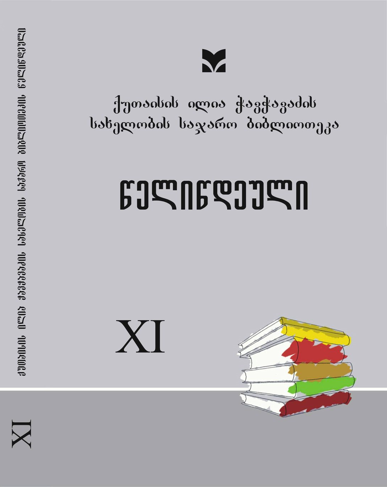According to the Memoirs of Sofrom Mgaloblishvili, the Village of Kartli
DOI:
https://doi.org/10.48614/yk.11.2019.207-213Keywords:
Patriarchal Family, Mastadoba, Khanuloba, Lekianoba, Ossetian Attacks, Russian SoldiersAbstract
Sophrom Mgaloblishvili, a 19th-century Georgian memoirist, describes his modern village interestingly in an interesting way. He grew up in the village of Dirbi in Kartli and is well aware of his plight. The writer is particularly concerned that no one, not even in the sixties, was able to heal the village ulcer.
In his memoirs, the writer brings to life different aspects of rural life: socioeconomic situation, singing culture, various games ... He is worried that traditions are gradually disappearing and spirituality is replaced by gross material interests.
According to Sophrom Mgaloblishvili, labor was distributed among the old families. One member of the family was a plowman with his plow, another - a farmer, a third - a beekeeper, a fourth - a shepherd ... Girls and boys were also involved in the work. Their superiors did not put them to work, they showed a love of labor from the very beginning. In his time, they also allowed the game. DIY things were for them to do. The case was also distributed among women.
According to the memoirist, the role of the priest in the village was immeasurable: he became a true intellectual, teacher, and tutor. He used to read «Tigerskin» on Sundays, explain the gospel ... Raising children was also his job. People also treated him with respect.
The story of bringing salt from the ascent is interestingly described in the memoirs - it is a somewhat risky and courageous fact. Returning home from the ascent was a peaceful holiday. The whole village greeted the newcomers with joy and there was one kiss.
Sophrom Mgaloblishvili›s memoirs interestingly convey the Lekta raid in the villages of Kartli and its tragic consequences; Thieves oss attacks by Ossetians, led by Russian soldiers temporarily evacuated after the Crimean War. Russian soldiers were stationed here a year after the Crimean War. There were two to four soldiers in each family. They brought great trouble to the Georgian village:
They kidnapped everything that could be stolen and eaten. The elders themselves could not arrange anything with them, nor did they help Garozgva. The biggest threat was posed to young women in the village. The villagers were forced to evict their daughters elsewhere or lock them in their homes to protect their honor.
Sophrom Mgaloblishvili›s description of the Georgian village has many things significant and very relevant today. Nothing has changed for the better here, on the contrary, part of Kartli is occupied, many Georgian villages have been emptied and looted.




